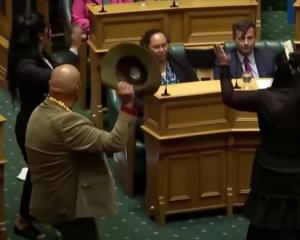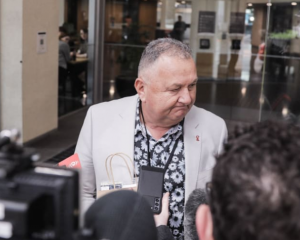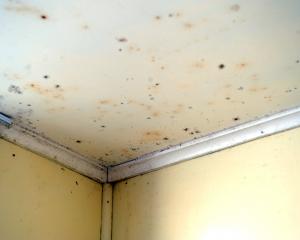Ongoing issues with KiwiRail's controversial Chinese-made freight wagons are making the state-owned enterprise's decision to award the building contract overseas appear increasingly questionable.
Work on 500 faulty wagons has been taking place for the past two weeks in Picton, carried out by more than a dozen China CNR Corporation staff and a team of translators, working under the supervision of KiwiRail staff.
At least some of the work is on brake components. However, the obfuscation, rhetoric, semantics, claims and counterclaims between unions, politicians and KiwiRail in the long-running saga make it difficult to establish whether the work involves ''repair'' or ''upgrades'', whether it should be expected, and whether the full costs of all work so far are being borne by the Chinese manufacturers or KiwiRail and the taxpayer.
KiwiRail has said it is also using the repair period to upgrade brake components, which were apparently scheduled to be standardised to a new design, but such work is to be expected as part of routine maintenance.
However, it must be remembered brake pads on the 500 wagons had to be replaced before they even entered service in 2011 as the wagons couldn't stop in a safe period of time when fully loaded.
That was apparently done under warranty, as is the current work, according to KiwiRail, which will not disclose the costs but says it is hoped the rate of work will double shortly.
Even if the ongoing costs are being borne by CNR, the problems with the stock have reignited safety concerns and debate over the state-owned enterprise's original decision to award the $49 million contract to CNR, rather than have the wagons built at its workshops in Dunedin and Lower Hutt.
The loss of work contributed to the loss of dozens of industry jobs, including 44 at Hillside, and effectively signed the facility's death warrant as the financial impact of the reduction in construction and refurbishment forward work orders meant there was no longer enough work to make the facility viable.
It closed in December 2012 after 130 years of operation.
Workers faced the threat and then the reality of redundancies even as it was revealed the first batch of the cheaper Chinese-built stock proved to have extensive mechanical problems and the second batch was put on hold awaiting design modifications, but the deal remained in place.
In addition to the problems with the wagons, earlier this year 40 of the Chinese-built locomotives were removed from service for six weeks after it was discovered cancer-causing asbestos had been sprayed on to parts of them and had to be removed, despite the contract with the Chinese firm stipulating no asbestos or toxic materials were to be used.
While it has been difficult to get any figures from KiwiRail regarding the various repairs, Rail and Maritime Transport Union general secretary Wayne Butson has been vocal about the decision to outsource the manufacturing work.
It is of little surprise he is again raising questions about the possible hidden and wider costs such as freight delays, fuel usage and the accommodation costs of workers.
It is certainly relevant to query the overall costs - both short and long term. After all, the contract was originally awarded because of cost savings, with KiwiRail and the Government saying New Zealand-built wagons would be anything from 25% to 40% more expensive than their outsourced equivalents.
Questions concerning design and quality inevitably lead to the weighing up of the social and economic costs to New Zealand by outsourcing the work.
Has the attraction of cheaper wages and materials come at the cost of jobs, businesses, skill losses, increased welfare payments and regional economic prosperity?
And, worryingly, could safety also be part of the trade-off?
The global environment in which New Zealand now operates is increasingly competitive.
Trade deals mean we have wider obligations, too. KiwiRail is a business, must make a profit, and - particularly in tough economic times - must make necessary cost savings where required in order to survive.
But as long as there remain problems with the rail stock, and the real costs are not disclosed, New Zealanders, including those in the once-proud manufacturing sector, and those in Dunedin who lost skilled jobs with Hillside, will continue to ask questions about whether the tradeoff has been worth it.












